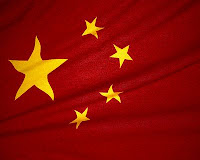 Sixty Years of The People’s Republic of China
Sixty Years of The People’s Republic of China
The Peoples Republic of China will celebrate the 60th Anniversary of its Liberation on October 1 this year. The celebrations, confined to Beijing, have already begun and China is showing the world its achievements through the use of the state- controlled media. One visit to the website of the China Daily shows the theme which projects what the Chinese state wants to be known as. The banner on the website announcing the anniversary shows a high speed train and white pigeons flying around areas of green. The backdrop to this canvas of course remains red. The message is loud and clear and yet very simple; the People’s Republic wants to be known as a peacefully developing nation state under the guidance of the Chinese Communist Party. This banner also showcases the present leadership’s idea of the ‘Scientific Development Concept’, with stress on innovation, sustainability and inclusiveness as its core focus.
China has come a long way since Chairman Mao proudly declared “the Chinese people have stood up” to throw out imperialism and colonialism. A liberated China promised her people equality, freedom, development, self respect among other things. And one can see that through the mix of ideology and endeavour, innovation and trade, foreign support and domestic activity China has transformed itself from a country with extensive baggage of feudal history into the economic powerhouse in the world. Today one can love or hate China but can not ignore it anymore.
It is certainly true that the path to today’s China has not been smooth and the picture is less rosy than the leadership would have liked. The PRC has seen many upheavals ever since its inception. Some were natural, some man made and some that occurred because of the miscalculations of the leadership. First was the Korean War which changed the worldview of Mao. Followed by floods and droughts of 1950, the anti-rightist campaign the “Great Leap Forward”, the rural peoples’ communes, the greet famine and then came the Cultural Revolution which set back China’s development since liberation but also set a strong background for the subsequent reforms. It additionally drove home the importance of peaceful transition. It was followed by the reform period during which the Tiananmen Square incidents happened in May and June 1989. Tiananmen Square incidents taught the Chinese leadership on the importance of considering the adoption over the long run of reforms outside the economic sphere and of accommodating dissent.
However, through all these periods of uncertainty, domestically China has been able to achieve much more than what have many other nations that won their independence/liberation about the same time. The social transformation of China achieved under the Communist Party is nothing less than miraculous. China achieved remarkably on social indicators during Maoist era, simply because of its welfare policies. Maoist ideology was able to wipe out feudalism from most of China and implement egalitarian measures that were inclusive in nature. When the Chinese people followed Mao’s ideas en masse, it was not just because of blind faith but in a short period of time the Chinese State was able to create many stakeholders in the growth of the nation. This social uplifting helped China when economic reforms were implemented as the workforce needed to implement the reforms was readily available. This resulted in substantial increase in the country’s GDP and subsequently in its per capita income. Today China’s GDP is the second largest in the world in PPP terms.
China’s relations with the outside world has reflected its domestic issues. Once an exporter of Chinese style of Communism when it was isolated internationally and was surrounded by hostile powers, today’s China is the mainstay of the capitalist world exporting a large quantity of what the world imports. China played an important role in the recovery following the crisis in the Asian tigers in 1997. Its domestic development helped its role in the regional issues. In recent times, its importance is also exemplified in US Secretary of State Hillary Clinton’s visit to China in which she urged China to play a leading role in solving the global financial crisis. This simple statement reflects the fact that the axis of the world order is changing and China is slowly but surely assuming the centre stage.
In India, much of the understanding of China percolates from the memories of the 1962 war. There is more mistrust and misconception about China’s intent amongst the masses, sometimes fanned, by a nationalist and occasionally, sensationalist media. The occasion of the 60th anniversary of Chinese Liberation should be used to understand China in a proper light. China will remain India’s competitor in many spheres of activity for a long time. However, this does not mean that it will necessarily be a threat to India’s integrity and identity. If China’s power appears intimidating then the solution is in knowing how to get there. India’s best response would be, while retaining its democratic polity, as well as its defence preparedness, to make economic growth its central task.
THIS COMMENTARY WAS PUBLISHED ON THE WEBSITE OF IDSA WHERE I WORK AS RESEARCH ASSISTANT
 Sixty Years of The People’s Republic of China
Sixty Years of The People’s Republic of China
Comments